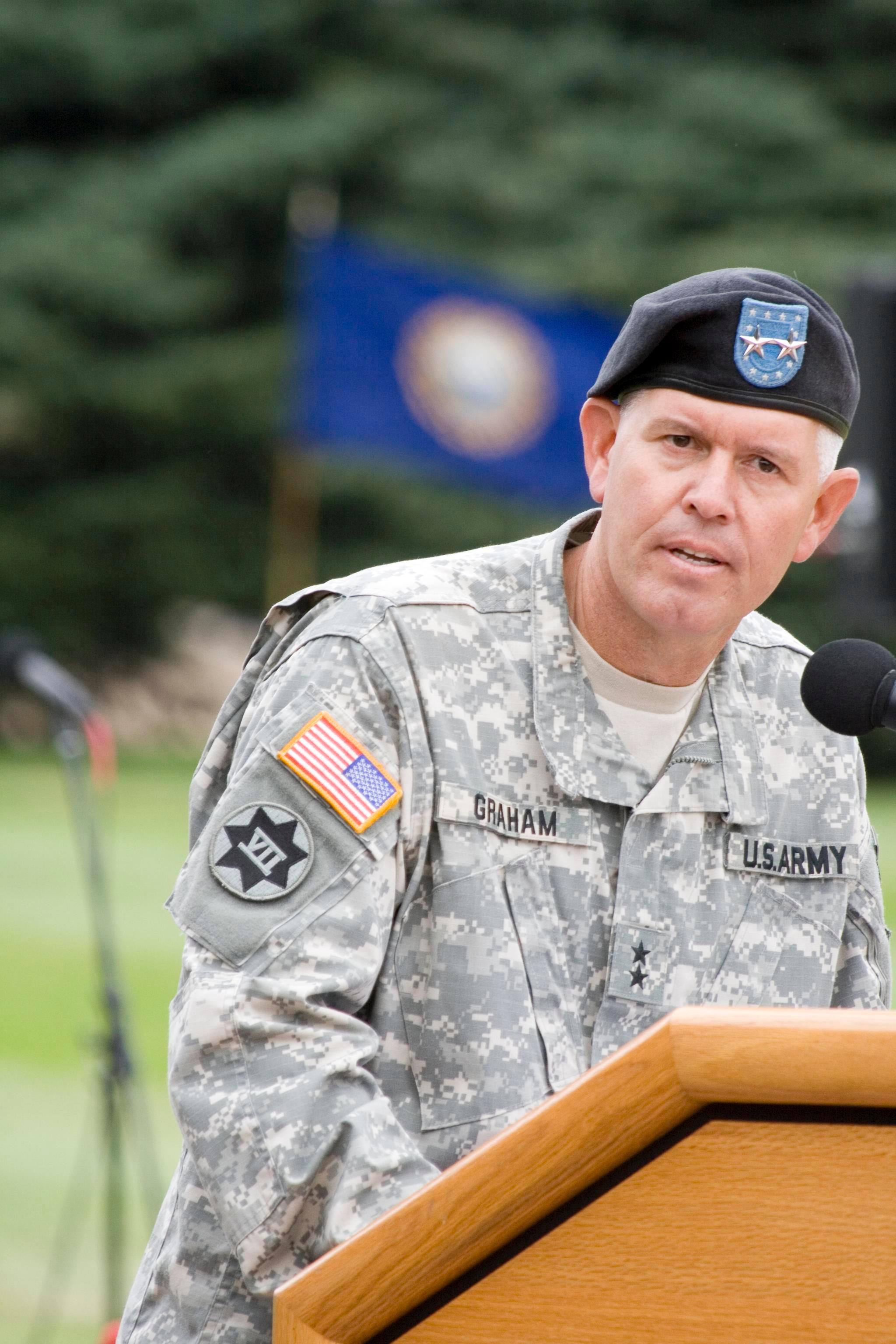
A former Fort Carson commander says the Army needs to do more to help soldiers who have returned from Iraq and Afghanistan.
"We need to help, not judge," said retired Maj. Gen. Mark Graham. He was in charge of Fort Carson near Colorado Springs from 2007 to 2009.
His remarks come in response to an investigation by Colorado Public Radio and NPR into the care of troops that have fought in the wars. Since 2009, the Army has discharged 22,000 combat troops for misconduct. Those troops were also diagnosed with mental issues like post-traumatic stress disorder or brain injuries. Hundreds, if not thousands more combat troops were discharged with "adjustment disorder," a diagnosis that means the soldier could not adjust emotionally to Army life. Soldiers discharged this way can be denied benefits they may be due.
Graham lost both of his sons more than a decade ago. Army Lt. Jeffrey Graham was killed in an explosion in Iraq. Kevin Graham, a cadet who wanted to join the Army, took his own life.
Many of the soldiers in the CPR/NPR investigation were from Fort Carson. Graham now works to prevent military suicides as the director of the nonprofit Vets4Warriors. He spoke with Colorado Matters host Ryan Warner. Click the audio player above to hear the conversation and read highlights below.
On military culture:
"In the military, because of the culture of the military, you're taught to suck it up. You're taught to be tough, because you'll be in tough positions. Whether you've deployed or not, it's just a tough lifestyle. Even though you volunteer and choose that lifestyle, it's going to be tough."
On his son Kevin:
"I think he felt that he was less of a person or had a character flaw because he had these feelings. And in fact, it wasn't. It was real. Post-traumatic stress is real. Depression is real, which is what our son had. It's an illness. The stigma not only comes from others, it comes from within."
On how Fort Carson operated:
"It was tough. You needed to deploy units, and keep soldiers back for mental health care. That just made it tougher to get enough people to go and do the mission."
On whether the military was prepared to deal with mental health issues:
"I think 20/20 hindsight is good, because we can look and learn. But I don't think anyone saw this coming. Some people might have, and might have warned about it. But I think it was hard to see the magnitude of this issue manifesting like it did. ...
"I lost my own son. And I think I was part of the stigma too, not even meaning to be. ... It's hard to see it coming. There are other things in life we should have seen coming, but we didn't. We have to learn from what we have seen now and get better."
More: Vets4Warriors.com / Veterans Help Line: 800-273-8255
The CPR News-NPR Investigative Series:
- Oct. 28, 2015: Army Kicked Out Thousands Of Soldiers With Brain Injuries, Mental Health Issues
- Nov. 4, 2015: Senators Demand Probe Into Army's Discharge Of Troops With Mental Problems
- Nov. 25, 2015: When The Army Pushes A Soldier Out, His Mental Health Struggles Are Left To Others
- Nov. 25, 2015: Former Fort Carson Commander: 'We Need To Help, Not Judge' Struggling Troops
- Dec. 3, 2015: Army Says It Will Review Pattern Of PTSD, Brain Injuries Discharges
- Feb. 21, 2016: Four U.S. Senators Demand The Army Stop Discharging Troubled Combat Soldiers







